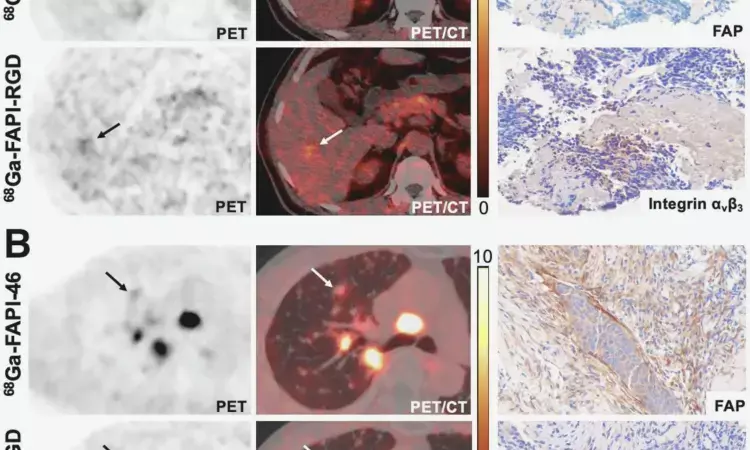- Home
- Medical news & Guidelines
- Anesthesiology
- Cardiology and CTVS
- Critical Care
- Dentistry
- Dermatology
- Diabetes and Endocrinology
- ENT
- Gastroenterology
- Medicine
- Nephrology
- Neurology
- Obstretics-Gynaecology
- Oncology
- Ophthalmology
- Orthopaedics
- Pediatrics-Neonatology
- Psychiatry
- Pulmonology
- Radiology
- Surgery
- Urology
- Laboratory Medicine
- Diet
- Nursing
- Paramedical
- Physiotherapy
- Health news
- Fact Check
- Bone Health Fact Check
- Brain Health Fact Check
- Cancer Related Fact Check
- Child Care Fact Check
- Dental and oral health fact check
- Diabetes and metabolic health fact check
- Diet and Nutrition Fact Check
- Eye and ENT Care Fact Check
- Fitness fact check
- Gut health fact check
- Heart health fact check
- Kidney health fact check
- Medical education fact check
- Men's health fact check
- Respiratory fact check
- Skin and hair care fact check
- Vaccine and Immunization fact check
- Women's health fact check
- AYUSH
- State News
- Andaman and Nicobar Islands
- Andhra Pradesh
- Arunachal Pradesh
- Assam
- Bihar
- Chandigarh
- Chattisgarh
- Dadra and Nagar Haveli
- Daman and Diu
- Delhi
- Goa
- Gujarat
- Haryana
- Himachal Pradesh
- Jammu & Kashmir
- Jharkhand
- Karnataka
- Kerala
- Ladakh
- Lakshadweep
- Madhya Pradesh
- Maharashtra
- Manipur
- Meghalaya
- Mizoram
- Nagaland
- Odisha
- Puducherry
- Punjab
- Rajasthan
- Sikkim
- Tamil Nadu
- Telangana
- Tripura
- Uttar Pradesh
- Uttrakhand
- West Bengal
- Medical Education
- Industry
New PET radiotracer shows potential for cancer imaging, study shows

China: A new PET radiotracer binds to two established diagnostic targets in cancer patients that may have advantages over current approaches owing to its "dual-receptor-targeting" ability, researchers state in a recent study. The new tracer (Ga-68 FAPI-RGD) showed promise in a study comprising 22 patients receiving PET/CT exams.
The new tracer was developed by a group led by Dr Liang Zhao of Xiamen University in Xiamen, China, and described their findings in The Journal of Nuclear Medicine. They synthesized a gallium-68 (Ga-68)-based heterodimer tracer by combining key peptides used for creating single FAPI (fibroblast activation protein inhibitor) and RGD (arginine-glycine-aspartic) radiotracers.
"Our study demonstrated the safety and clinical feasibility of 68Ga-FAPI-RGD PET/CT for imaging various cancer types," the team wrote. "Its dual-receptor-targeting property results in improved tumour uptake and retention compared with 18F-FDG and 68Ga-FAPI PET/CT."
PET/CT imaging with the radiotracer F-18 FDG is the gold standard in cancer imaging. However, the tracer exhibits low to moderate uptake in certain types, including liver, pancreatic, and gastric cancers. Recently, FAPI-based radiotracers (including FAPI-46 and FAPI-04) have developed that specifically bind to FAP protein on cancer cells and have shown positive results. RGD peptide-based tracers that bind to integrin alpha-v beta-3 (a glycoprotein) on cancer cells have also proven more specific. However, their clinical use has been limited by the rapid blood clearance of both tracers.
The research team hypothesized that the heterodimer, recognizing both integrin αvβ3 and FAP, would be advantageous owing to its dual-receptor–targeting property.
The researchers evaluated the effective dose of 68Ga-FAPI-RGD in three healthy volunteers. The 68Ga-FAPI-RGD PET/CT's clinical feasibility was assessed in 22 patients with various cancer types, and the results were compared with those of 68Ga-FAPI-46 and 18F-FDG.
The authors reported the following findings:
- 68Ga-FAPI-RGD was well-tolerated, with no adverse events in patients or healthy volunteers.
- The effective dose from 68Ga-FAPI-RGD PET/CT was 1.01 × 10−2 mSv/MBq.
- In clinical investigations with different cancer types, the radiotracer uptake and tumour-to-background ratio (TBR) of primary and metastatic lesions in 68Ga-FAPI-RGD PET/CT were remarkably higher than those in 18F-FDG PET/CT (primary tumours: SUVmax, 18.0 versus 9.1, and TBR, 15.2 versus 5.5; lymph node metastases: SUVmax, 12.1 versus 6.1, and TBR, 13.3 versus 4.1), resulting in an improved lesion detection rate and tumour delineation, specifically for the diagnosis of lymph node (99% versus 91%) and bone (100% versus 80%) metastases.
- 68Ga-FAPI-RGD PET/CT also demonstrated a higher radiotracer uptake and TBR than 68Ga-FAPI-46 PET/CT.
"68Ga-FAPI-RGD demonstrated improved tumour uptake and TBR compared with 18F-FDG and 68Ga-FAPI PET/CT," the researchers wrote. "This study showed the safety and clinical feasibility of 68Ga-FAPI-RGD PET/CT for imaging various cancer types."
They concluded, "Further investigation of the diagnostic accuracy of Ga-68 FAPI-RGD as a PET tracer, as well as its antitumor efficacy after labelling with therapeutic radionuclides, is necessary."
Reference:
Clinical Evaluation of 68Ga-FAPI-RGD for Imaging of Fibroblast Activation Protein and Integrin αvβ3 in Various Cancer Types. Liang Zhao, Xuejun Wen, Weizhi Xu, Yizhen Pang, Long Sun, Xiaoming Wu, Pengfei Xu, Jingjing Zhang, Zhide Guo, Qin Lin, Xiaoyuan Chen, Haojun Chen. Journal of Nuclear Medicine May 2023, jnumed.122.265383; DOI: 10.2967/jnumed.122.265383
Dr Kamal Kant Kohli-MBBS, DTCD- a chest specialist with more than 30 years of practice and a flair for writing clinical articles, Dr Kamal Kant Kohli joined Medical Dialogues as a Chief Editor of Medical News. Besides writing articles, as an editor, he proofreads and verifies all the medical content published on Medical Dialogues including those coming from journals, studies,medical conferences,guidelines etc. Email: drkohli@medicaldialogues.in. Contact no. 011-43720751


